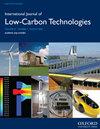基于DPSA算法的海绵低碳城市河道生态需水量计算模型及应用
IF 2.3
4区 工程技术
Q3 ENERGY & FUELS
引用次数: 0
摘要
摘要为提高海绵低碳城市河流生态需水量预测能力,提出了基于大数据分析的海绵低碳城市河流生态需水量预测模型。建立了海绵城市和低碳城市河流生态需水量统计分析模型。采用差分粒子群优化算法(DPSA)计算海绵和低碳城市河流生态需水量特征量。构建了海绵和低碳城市河流生态需水量预测的生态系统热液平衡检测模型和地下水位对数正态分布时间序列。结合河流生态环境需水量预测与信息交换一体化控制方法,建立了低碳海绵城区河流生态需水量分散控制模型。通过适用性分析和模型测度分析,结合综合指标测度,优化低碳海绵城区河流生态需水量预测模型。实证分析结果表明,该方法对海绵低碳城区河流生态需水量预测具有较好的适应性和较高的预测精度,提高了河流生态需水量预测的可靠性和城市生态环境的匹配水平。本文章由计算机程序翻译,如有差异,请以英文原文为准。
Calculation model and application of ecological water demand of watercourses in low-carbon sponge urban areas based on DPSA algorithm
Abstract To improve the prediction ability of river ecological water requirement in sponge low-carbon urban areas, a prediction model of it based on big data analysis was proposed. A statistical analysis model of river ecological water requirement in sponge and low-carbon urban areas was established. Differential Particle Swarm Optimization Algorithm (DPSA) was used to calculate the characteristic quantity of river ecological water requirement in sponge and low-carbon urban areas. The detection model of ecosystem hydrothermal balance and lognormal distribution time series of groundwater level were constructed for the prediction of river ecological water requirement in sponge and low-carbon urban areas. Combined with the integrated control method of river ecological environment water demand forecasting and information exchange, a decentralized control model of river ecological water demand in low-carbon sponge urban areas was established. Through applicability analysis and model measurement analysis, combined with comprehensive index measurement, the prediction model of river ecological water requirement in low-carbon sponge urban areas was optimized. The empirical analysis results show that this method has good adaptability and high prediction accuracy for the prediction of river ecological water requirement in sponge low-carbon urban areas and improves the reliability of the prediction of river ecological water requirement and the matching level of urban ecological environment.
求助全文
通过发布文献求助,成功后即可免费获取论文全文。
去求助
来源期刊

International Journal of Low-carbon Technologies
Engineering-Architecture
CiteScore
4.30
自引率
4.30%
发文量
106
审稿时长
27 weeks
期刊介绍:
The International Journal of Low-Carbon Technologies is a quarterly publication concerned with the challenge of climate change and its effects on the built environment and sustainability. The Journal publishes original, quality research papers on issues of climate change, sustainable development and the built environment related to architecture, building services engineering, civil engineering, building engineering, urban design and other disciplines. It features in-depth articles, technical notes, review papers, book reviews and special issues devoted to international conferences. The journal encourages submissions related to interdisciplinary research in the built environment. The journal is available in paper and electronic formats. All articles are peer-reviewed by leading experts in the field.
 求助内容:
求助内容: 应助结果提醒方式:
应助结果提醒方式:


